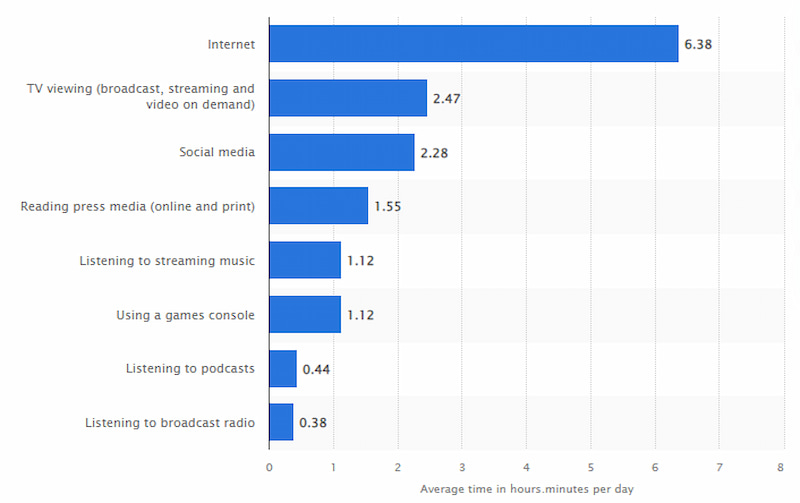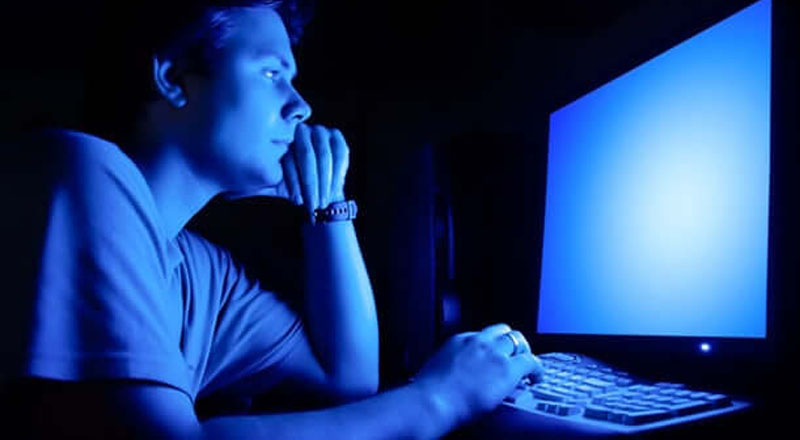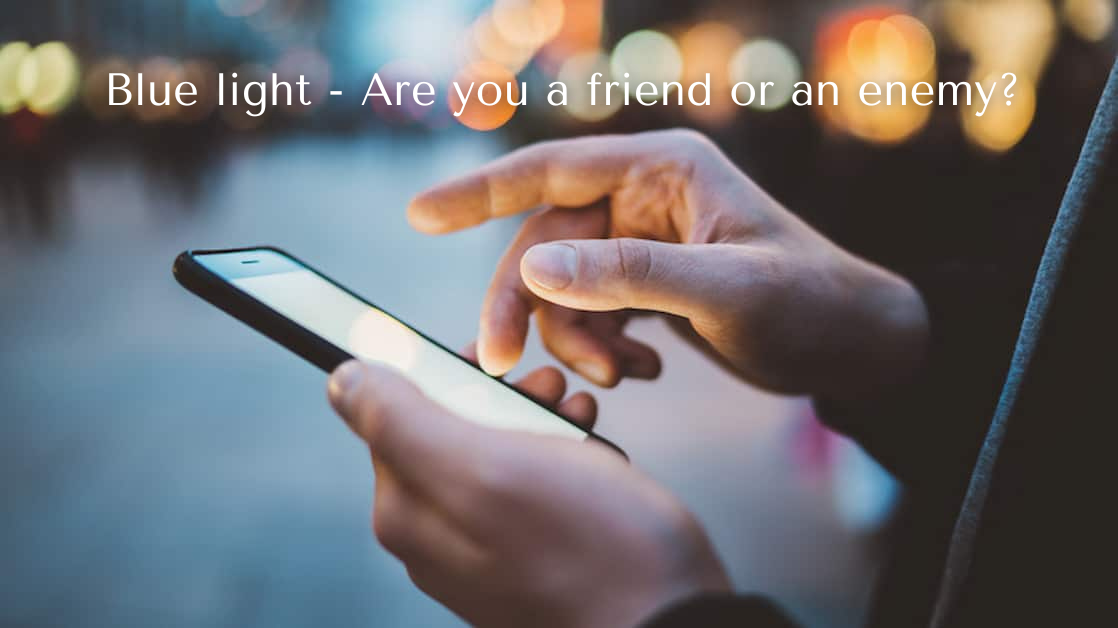Working on the computer, surfing the internet on phone, every Vietnamese spends an average of 6.38 hours using the internet, 2.28 hours on media, and 2.47 hours watching TV daily according to STATISTA. For that reason, it is of utmost importance to realize and consider the negative implications of the blue light on our bodies.

The Digital revolution has damaged all human beings’ digital wellness. Many people are still skeptical about whether the blue light from electrical devices is bad for your eyes, your skin and your health or the whole concept is a marketing strategy.

1. Blue light – What are you?
In physics, blue light is defined as high-energy visible (HEV) light with a wavelength within the range of 380 nm to 500 nm. These wavelengths are reported to have opposite biological effects on human bodies. You may have heard many people whining about how the blue light destroyed their eyes and aged their skin. Meanwhile, you saw beauty salons advertising the benefits of blue light photography in treating skin diseases.
To clear the confusion, the fact is that with different wavelengths, blue light affects humans’ bodies in distinctive ways.
One more thing you should know is that you can never escape the blue light. It exists everywhere from the sunlight (the biggest source!) to artificial lights such as fluorescent lights, LED TVs, smartphones, tablets, and computer screens. For that reason, instead of avoiding it thoroughly, we must learn how to protect ourselves from the blue light.

>>> Read more: “Hiring the wrong people is like shooting yourself in the feet” – Kevin Tung Nguyen – CEO of JobHopin says in an interview with JETRO
2. Blue light in a form of a foe
HEV light is undoubtedly harmful to both your mental and physical health. According to UC David Health, blue light from screens affects your sleep cycle by disturbing your circadian rhythm since it prevents the production of melatonin. That’s why being exposed to blue light; especially, at night when the melatonin production peaks, for an excessive amount of time damages the retina through the ocular surface, destroys hormonal secretion, directly affects sleep quality, and generates sleep disorders. Sleep quality leads to several eye diseases like dry eyes, age-related macular degeneration, even cataracts, and eye cancer. Sleep disorders boost the production of corticosteroids which contributes to the occurrence of dry eyes.
Also, narrow wavebands of blue light provoke cellular death, induce oxidative stress, and damage DNA. In the theory of how our bodies function, when your DNA is harmed, the ability to copy and reproduce diminishes in accuracy which accelerates the aging process and creates inflammations. This also confirms the bad effects of blue light on our skin.
3. Blue light in a form of a friend
However, blue light is not totally harmful. Blue light regulates circadian rhythm. It generates alertness, boosts memory, cognition, and brain function. That’s why being exposed optimally to all the light regulates your sleep-and-wake cycle (aka circadian rhythm). Yes, it’s necessary!
As we mentioned before, blue light photography is widely used and applied in dermatology. Its effectiveness is scientifically proven.
>>>Read more: Leveraging Employee Experience in the Digital Age
4. How do we fight the blue light?
There are numerous ways you can find online to minimize the implications of blue light, but how many methods work or are they aiming at selling something are questions that need answers.
Some of the most common approaches in protecting yourself from the HEV light are:
Apply 20-20-20 rules
You should take 20 seconds to look at something at 20 feet (6 meters) away to rest your eyes after every 20 minutes constantly working on the computer or surfing the internet on your phone.

Practice social media detox during lunch hours when you are at work
Many people are addicted to social media. In the digital era and with the rise of short, fast-consuming content, addiction to your phone isn’t only harmful to children, it also occurs and obstructs adults’ lives. When you are at work, you might have a habit of opening Facebook, Instagram, Tiktok, or reading an ebook at lunchtime. These activities may look like resting, because it relaxes your mind, and distracts your attention from the tasks which are waiting to be done. However, blue light from phone and tablet screens also harms your body. Therefore, breaking the habit of reaching for your phone when you want to relax is crucial. Give your eyes a break and invent healthy habits, colleagues!
Activate night shift mode and turn down the brightness setting on your devices
The night shift mode is also advertised as a way to reduce the effects of blue light. Many big players in the technology industry want their users to believe that turning their screen yellow can eliminate the blue light. Nonetheless, this method is not proven competent. Alternatively, you can eliminate unnecessary notifications to reduce on-screen time which is a more practical method to protect your health than turn on night shift mode and look at the screen all night.
Consider a screen filter, blue light filters, and protective glasses
The effectiveness of blue light filters is also controversially discussed. The question indicates whether it is worth the hype and the extra money or not, the answer is based on personal preference. There are many other options you can consider such as choosing light sensitivity glasses which are usually in pinkish or amber-like color to filter out wavelengths of blue and green.
Additionally, when you are concentrating, your eyes don’t blink as much as you naturally should which irritates and fatigue your eyes. We are suggesting you practice resting your eyes and use artificial tears to reduce dryness.

To sum up, blue light is not only a necessary, but also an inevitable part of our lives. Understanding the pros and cons can help readers identify and decide what to do and what is best for them. Many approaches provided on the internet are not completely effective and this blog contributes another perspective regarding the writer’s belief. Hopefully, this can be a great start for you to take action in protecting your health and enhancing your well-being.
>>> Read more: Future-Proof Your Career In The Digital Age
The JobHopin Team


